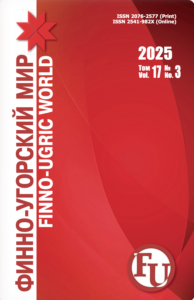Comparison of athletic component of traditional games in Ugra and Yakutia
Kylasov Alexei V.,
Candidate Sc. {Cultural Studies}, Assistant Professor, Department of Management and Marketing of the Sports Industry, G. V. Plekhanov Russian Economic University (Moscow, Russia), kylasov@yandex.ru
Comparing the experience of Ugra and Yakutia it reveals fundamentally different approaches to athletic component of the traditional games. The need for such research is explained by the updating of identification processes and self-identity of peoples, which is most evident during the folk festivals, which program is often being expanded due to the inclusion of traditional games.
Keywords: dialogue of cultures; folk festivals; intangible cultural heritage; socio-cultural design; traditional games; folk; ethnical sports.
1. Gorbunov, B. V. (1997), Traditional hand-to-hand competitions in folk culture of the Eastern Slavs of XIX – early XX century, History and Ethnography research, Moscow.
2. Kylasov, A. V. (2013), Ethnical sport. The end of degeneration era: Future Territory.
3. Lomshina, E. N. (2014), Tendencies of development of the festive culture of Mordovian ethnos, Finno-Ugric world, № 4 (21), p. 18–19.
4. Lomshina, E. N. (2008), Festive culture of Mordovians, Regionology, № 2, p. 339–341.






















